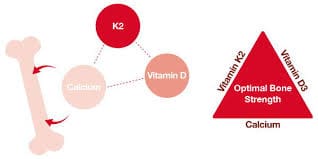Magnesium glycinate is a form of the mineral magnesium bound to the amino acid glycine, which is known for its calming and soothing effects. As a supplement, magnesium glycinate offers a variety of health benefits, including its potential to improve sleep quality and duration. In this comprehensive overview, we will explore how magnesium glycinate can support better sleep and provide other health benefits as well.
Support for Sleep Disorders
Individuals who suffer from sleep disorders such as insomnia may benefit from magnesium glycinate supplementation. Magnesium glycinate’s ability to calm the nervous system, promote muscle relaxation, and enhance sleep quality can be particularly helpful for those with sleep disorders, offering a natural and non-pharmaceutical approach to improving sleep.
Regulation of Sleep Patterns
Magnesium is involved in the regulation of neurotransmitters in the brain, including gamma-aminobutyric acid (GABA). GABA plays a key role in promoting relaxation and calming the nervous system, which is essential for falling asleep. By increasing GABA activity, magnesium glycinate can help regulate sleep patterns and improve the onset and maintenance of sleep..
Reduction of Stress and Anxiety
Magnesium is known to help reduce stress and anxiety by calming the nervous system. By alleviating stress, magnesium glycinate can create an environment conducive to falling asleep more easily and staying asleep throughout the night. Reduced anxiety can also prevent the overactive thinking that can keep you awake.
Muscle Relaxation
Muscle tension can disrupt sleep, causing discomfort and restlessness during the night. Magnesium plays a crucial role in muscle relaxation, and magnesium glycinate supplementation can help ease muscle cramps and spasms. This relaxation can lead to a more restful and uninterrupted night’s sleep.
Enhanced Sleep Quality
Magnesium glycinate has been shown to enhance the quality of sleep by promoting deeper and more restorative sleep cycles. By improving the duration and intensity of sleep, magnesium glycinate ensures that you wake up feeling refreshed and rejuvenated.
Regulation of Circadian Rhythms
Circadian rhythms control the body’s natural sleep-wake cycles. Magnesium plays a role in regulating these rhythms by influencing the production of melatonin, the hormone responsible for signaling the body when it’s time to sleep. Magnesium glycinate supplementation can support healthy circadian rhythms, making it easier to fall asleep at the appropriate time and wake up feeling refreshed.
Restless leg Syndrome
Restless Legs Syndrome (RLS) is a condition characterized by an irresistible urge to move the legs, often accompanied by uncomfortable sensations. Magnesium glycinate’s muscle-relaxing properties can help alleviate symptoms of RLS, leading to more peaceful and uninterrupted sleep.

Alleviation of Sleep Apnea Symptoms
Sleep apnea is a condition in which breathing is interrupted during sleep, leading to poor sleep quality and other health issues. While more research is needed, magnesium glycinate may help alleviate some symptoms of sleep apnea by relaxing muscles and promoting smoother breathing patterns during sleep.
Improved Overall Well-being
In addition to its direct impact on sleep, magnesium glycinate offers other health benefits that indirectly contribute to better sleep. For example, magnesium glycinate can support cardiovascular health, reduce inflammation, and promote overall relaxation, all of which can contribute to a more holistic and restful sleep experience.
Ease of Absorption
Magnesium glycinate is known for its high bioavailability and ease of absorption. This means that the body can efficiently utilize the magnesium, providing quick and effective benefits, including sleep improvements.
In summary, magnesium glycinate is a versatile and beneficial supplement that can improve sleep quality and duration through various mechanisms, including stress reduction, muscle relaxation, and the regulation of sleep patterns. By incorporating magnesium glycinate into your daily routine, you may experience enhanced sleep quality and wake up feeling rejuvenated and ready to take on the day.
What is magnesium glycinate, and how does it differ from other forms of magnesium?
Magnesium glycinate is a compound formed from magnesium and glycine, an amino acid. It’s known for its high bioavailability, meaning it is easily absorbed and utilized by the body compared to other forms like magnesium oxide or magnesium citrate. This form of magnesium is gentle on the stomach and less likely to cause laxative effects, making it a popular choice for those looking to increase their magnesium intake without gastrointestinal side effects.
How does magnesium glycinate contribute to improved sleep quality?
Magnesium glycinate may improve sleep quality through several mechanisms:
- Relaxation: Magnesium plays a role in regulating neurotransmitters that are crucial for calming the nervous system. Glycine, the amino acid in magnesium glycinate, also acts as a neurotransmitter that promotes relaxation and sleep.
- Stress Reduction: Magnesium helps regulate the body’s stress-response system by maintaining normal levels of cortisol, the stress hormone. Lower stress levels can lead to better sleep.
- Muscle Relaxation: Magnesium helps to relax muscles and can reduce nighttime leg cramps or restless leg syndrome, leading to more restful sleep.
- Melatonin Regulation: Magnesium is involved in the production of melatonin, the hormone responsible for regulating sleep-wake cycles.
Are there any studies supporting the use of magnesium glycinate for sleep improvement?
Yes, several studies suggest that magnesium supplementation can improve sleep.
For example:
- A study published in the “Journal of Research in Medical Sciences” found that elderly individuals who took magnesium supplements experienced improvements in sleep time, sleep efficiency, and early morning awakening compared to those who took a placebo.
- Another study published in “Magnesium Research” showed that magnesium supplementation improved subjective measures of insomnia, sleep efficiency, and sleep duration in individuals with poor sleep quality.
While these studies generally support magnesium’s role in enhancing sleep, specific research on magnesium glycinate is limited, but its high absorption rate makes it a potentially effective option.
What is the recommended dosage of magnesium glycinate for improving sleep?
The recommended dosage of magnesium glycinate for sleep varies, but general guidelines suggest:
- For adults, a typical dosage ranges from 200 to 400 mg of elemental magnesium per day. This amount can be divided into two doses taken in the morning and evening or taken as a single dose in the evening before bed.
- It’s important to start with a lower dose and gradually increase it to assess tolerance and avoid potential side effects like diarrhea.




